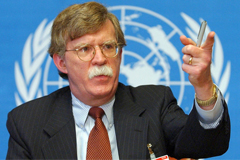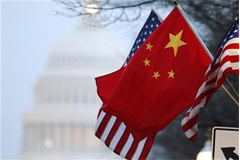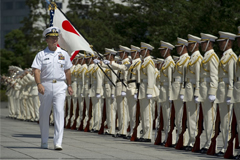News + Media
 |
AuditNovember 1, 2007Russia and America: is another arms race afoot?Jane MO Sharp, Kings College LondonDuring the Cold War years we learned that successful arms control agreements with the Soviet Union were those that codified parity, or at least a mutually acceptable status quo. After the collapse of the Soviet Union and the Warsaw Treaty Organization (WTO) in 1991, a much diminished Russia saw all its WTO allies and three former Soviet republics join NATO, making parity harder to achieve. |
 |
AuditNovember 1, 2007Is Port Security funding making us safer?Veronique de Rugy, George Mason UniversityThe most terrifying security threat to security experts and the public alike is nuclear proliferation. Once the figment of Hollywood imagination, the ultimate nightmare scenario that is discussed by some as inevitable is the detonation of a nuclear device on American soil. |
 |
In the NewsNovember 1, 2007After Bush: the case for restraintBarry PosenThe American InterestFrom November 2007 until election day 2008, the American Interest is examining questions of strategy, tone and tactics over a range of issues facing the next presidential administration. Barry Posen's "Case for Restraint" is first in this series. |
 |
Analysis + OpinionOctober 30, 2007An inspiration against nuclear armsJohn TirmanBoston GlobeIn 1980, she invented the call to freeze the nuclear arms race, and this simple but compelling idea - essentially, a moratorium on new nuclear weapons as a prelude to gradual disarmament - became the rallying cry for millions of people sickened by the rush to develop and deploy new nuclear weapons and missiles, space weapons, stealth bombers, and all the other expensive, provocative gadgets of the arms industry. |
 |
In the NewsOctober 3, 2007The Israel Lobby and US Foreign PolicyThe CIS Starr Forum featured a public discussion with John Mearsheimer (University of Chicago) and Stephen Walt (Harvard University) on their recent book “The Israel Lobby and U.S. Foreign Policy.” Joining the authors was Bruce Riedel (Brookings Institution). The event was held on Wednesday, October 3, from 6:00–7:30 p.m. in the Kirsch auditorium (Stata Center, Rm. 32-123). Visit the Starr Forum web site for videos on past events and a calendar of upcoming events. |
 |
AuditOctober 1, 2007Who failed whom? Assessing the UN’s human rights effortsBalakrishnan Rajagopal, MITSeveral months ago, during the finalization of the plan to replace the United Nations’ Commission on Human Rights with the new UN Human Rights Council, John Bolton, the U.S. ambassador to the UN, said with characteristic flourish, “We want a butterfly..." |
 |
AuditOctober 1, 2007Distracted at the creation: Washington’s China policyChristopher P. Twomey, Naval Postgraduate SchoolU.S. China policy in the beginning of the twenty-first century is greater than the sum of diplomatic initiatives and presidential statements. Since China’s rise is reshaping global politics, U.S. policy should be evaluated in this larger context. Washington must not only handle its relationship with China on a day-to-day basis, but must also lay the foundations for a long-term response to its rise.
|
 |
Analysis + OpinionSeptember 2, 2007The rogue that plays by the rulesEdward S. SteinfeldWashington PostAs many Americans understand the country, China is trouble for its own people and all the rest of us. Its government is hell-bent on development but provides none of the checks expected of a healthy market system: a free press, an independent judiciary, meaningful property rights and a real legislature. Institutionally deficient and stuck in the past, China is unprepared to deal with the future and to work within the rules of fair play that bind the world's most advanced economies -- or so the conventional wisdom suggests. |
 |
AuditSeptember 1, 2007Immigration reform: failure and prospectsTara Magner, National Immigrant Justice CenterThe debate over immigration reform in America has come full circle. It began in late 2005 with an “enforcement only” bill in the House of Representatives that relied on aggressive implementation of existing law and greatly restricting future immigration. The most extreme legislation proposed in this vein would have made felons of undocumented immigrants and prosecuted those who provide such immigrants with aid or comfort. |
 |
AuditSeptember 1, 2007'New fighting power!' for Japan?Richard Samuels, MITJapanese strategists struggled for decades to find a way to field a robust military despite legal, political, and normative constraints on the expansion of the Self-Defense Forces (SDF). Their progress was steady and significant, but slow. Now, leveraging off (and playing up) a perceived shift in the nature of the threat Japan faces, they have found a less constrained and highly efficacious route to force transformation. |



